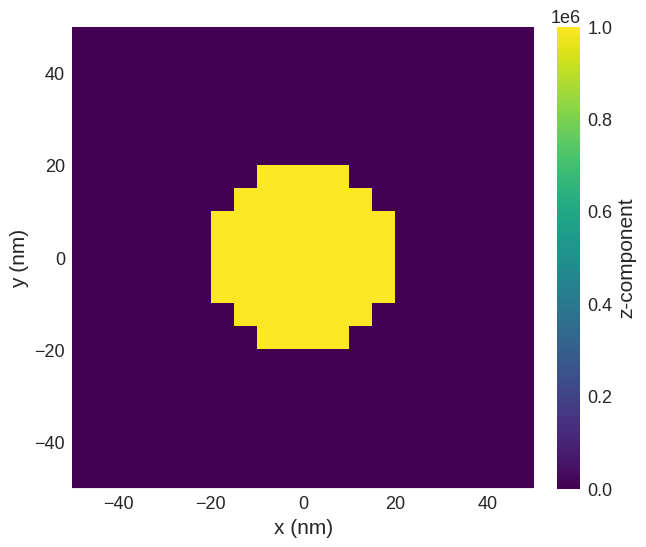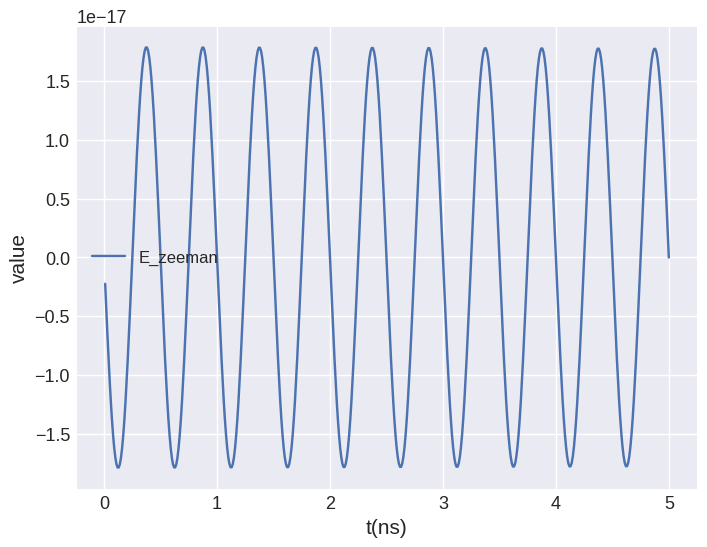Both spatially and time varying field#
When it is necessary to specify an external magnetic field which varies both in space and time, it can be done by:
defining an external magnetic field using
discretisedfield.Fieldpassing
waveargument tomicromagneticmodel.Zeemanterm
For more details on time-varying fields, please refer to other tutorials. We start by defining a system object.
[1]:
import oommfc as mc
import discretisedfield as df
import micromagneticmodel as mm
region = df.Region(p1=(-50e-9, -50e-9, 0), p2=(50e-9, 50e-9, 10e-9))
mesh = df.Mesh(region=region, cell=(5e-9, 5e-9, 5e-9))
system = mm.System(name="space_time_varying_field")
Now we can specify spatial and time varying field components. For the time-varying component, we choose a sine-wave with \(5\,\text{GHz}\) frequency and no time shift.
[2]:
def Hspace(point):
x, y, z = point
if x**2 + y**2 < 20e-9**2:
return (0, 0, 1e6)
else:
return (0, 0, 0)
H = df.Field(mesh, nvdim=3, value=Hspace)
The spatial distribution of the field looks like:
[3]:
H.sel("z").mpl()
/home/mlang/miniconda3/envs/ubermagdev310/lib/python3.10/site-packages/matplotlib/quiver.py:645: RuntimeWarning: divide by zero encountered in scalar divide
length = a * (widthu_per_lenu / (self.scale * self.width))
/home/mlang/miniconda3/envs/ubermagdev310/lib/python3.10/site-packages/matplotlib/quiver.py:645: RuntimeWarning: invalid value encountered in multiply
length = a * (widthu_per_lenu / (self.scale * self.width))

[4]:
system.energy = mm.Zeeman(H=H, func="sin", f=2e9, t0=0)
system.dynamics = mm.Precession(gamma0=mm.consts.gamma0) + mm.Damping(alpha=1e-5)
# create system with above geometry and initial magnetisation
system.m = df.Field(mesh, nvdim=3, value=(0, 0.1, 1), norm=1.1e6)
Now, we can drive the system using TimeDriver.
[5]:
td = mc.TimeDriver()
td.drive(system, t=5e-9, n=500)
Running OOMMF (ExeOOMMFRunner)[2023/10/23 16:08]... (1.9 s)
We can have a look at the Zeeman energy.
[6]:
system.table.mpl(y=["E_zeeman"])



